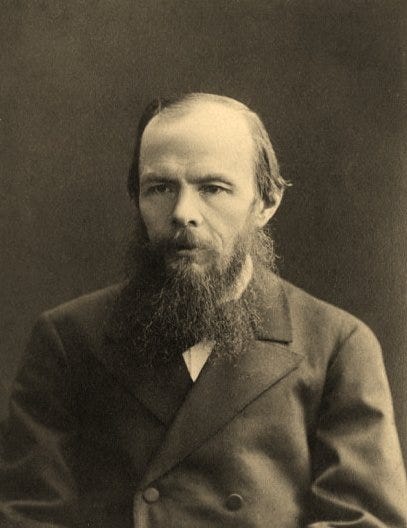There no one else like Him
I would even say more: If anyone could prove to me that Christ is outside the truth, and if the truth really did exclude Christ, I should prefer to stay with Christ and not with truth.
Fyodor Michailovitch Dostoevsky | Literature | Russia
[…] in such moments I have formulated my creed, wherein all is clear and holy to me. This creed is extremely simple; here it is: I believe that there is nothing lovelier, deeper, more sympathetic, more rational, more manly, and more perfect than the Saviour; I say to myself with jealous love that not only is there no one else like Him, but that there could be no one. I would even say more: If anyone could prove to me that Christ is outside the truth, and if the truth really did exclude Christ, I should prefer to stay with Christ and not with truth. I would rather not say anything more about it. And yet I don’t know why certain topics may never be touched on in society, and why, if anyone does introduce them, it makes the others uncomfortable. Still, enough of it.
I heard that you were desirous of travelling somewhere in the South. God grant that you may succeed in obtaining permission to do so. But will you please tell me when we shall be quite free, or at any rate as free as other people? Perhaps only when we no longer need freedom? For my part, I want all or nothing. In my soldier’s uniform I am the same prisoner as before. I rejoice greatly that I find there is patience in my soul for quite a long time yet, that I desire no earthly possessions, and need nothing but books, the possibility of writing, and of being daily for a few hours alone. The last troubles me most. For almost five years I have been constantly under surveillance, or with several other people, and not one hour alone with myself.
To be alone is a natural need, like eating and drinking; for in that kind of concentrated communism one becomes a whole-hearted enemy of mankind. The constant companionship of others works like poison or plague; and from that unendurable martyrdom I most suffered in the last four years. There were moments in which I hated every man, whether good or evil, and regarded him as a thief who, unpunished, was robbing me of life. The most unbearable part is when one grows unjust, malignant, and evil, is aware of it, even reproves one’s-self, and yet has not the power to control one’s-self. I have experienced that. I am convinced that God will keep you from it. I believe that you, as a woman, have more power to forgive and to endure.
Fyodor Dostoevsky, Letters of Fyodor Michailovitch Dostoevsky to his Family and Friends, translated by Ethel Colburn Mayne, first edition October 1914, second edition November 1917, London, Chatto & Windus

